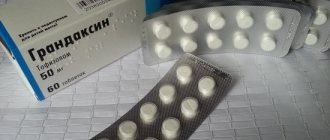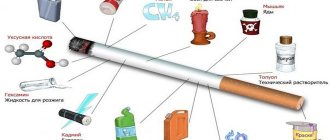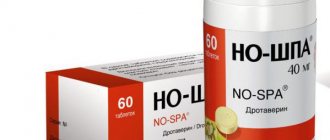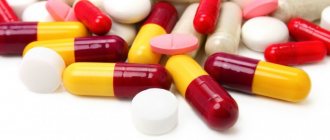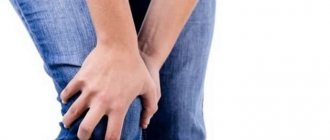Effects of caffeine on the body
A small cup of aromatic coffee really invigorates!
Why do such changes occur in the body? A person feels a surge of vivacity, energy surges, he wants to work and create miracles. Coffee is a kind of narcotic substance that people get used to. They need a new dose of drink every day to experience a surge of emotions. The caffeine contained in the drink is to blame for all this. It has a stimulating effect on the body, which is expressed in a surge of strength, a cheerful and energetic mood. But the effects of caffeine do not last long. To improve performance, you have to spur the body with a new dose of coffee, and this is already quite dangerous for all the internal organs of the human body.
What is the effect of caffeine on the human body? Here's how coffee lovers describe their feelings:
- The head becomes clear and sane.
- You want to have a snack, but if you don’t drink coffee in the morning, many people don’t want to eat.
- There is a feeling of increased performance. A person feels enough energy to move mountains, sort out piles of work at work, and get through a report faster.
- After a fragrant drink, it becomes easier to breathe, you can take a deep breath and come up with some smart idea.
The coffee drink helps stimulate brain receptors. As a result, after drinking a cup of coffee, the commands that the human brain produces are distorted and transformed. The brain produces a special substance - adenosine, which is a neurotransmitter. Its production occurs around the clock, but the amount may vary depending on whether a person is awake or resting. Adenosine can slow down the action of brain neurons, which is a signal for the brain to rest.
Adenosine affects the blood vessels that supply the brain. It attaches to brain receptors and causes vasodilation. Under the influence of adenosine, neurons are abundantly supplied with oxygen during night rest.
When caffeine enters the blood, the process of replacing adenosine with it occurs, since caffeine is similar in structure to it. The body does not receive signals that it is time to rest, and the blood vessels undergo severe constriction. This leads to headache or dizziness.
Drinks containing caffeine are not recommended to be taken in the afternoon. The effect of caffeine on the body does not occur immediately, which is why sleep problems arise. The brain, excited by caffeine, cannot calm down, which negatively affects overall well-being.
Coffee affects the pituitary gland, which, in response to stimulation, begins to intensively produce hormones. They go to the adrenal glands, which contributes to the production of a large dose of adrenaline. It is the effect of the latter on the body that leads to the appearance of such symptoms:
- breathing and heartbeat quicken, pulse just goes off scale;
- if you pay attention to the eyes of a coffee drinker, you will notice dilated pupils;
- under the influence of caffeine, a redistribution of blood in the body occurs: the main arteries leading to the heart and brain dilate, and the peripheral vessels become severely spasmed, causing a lack of blood in the skin and gastrointestinal tract.
Each person's reaction to drinking coffee is highly individual. For some, even after a single dose, their hearts begin to beat wildly, trying to escape from their chest, while others can calmly drink several cups a day and not complain about their health. If there is an individual intolerance to caffeine-containing products, then it is better to avoid them completely.
Why do people react differently to coffee? There are several factors that can influence sensitivity to coffee:
- if a person’s weight is below normal, then he will feel the effect of coffee much faster than his chubby friend;
- regular consumption of a coffee drink leads to a gradual increase in the dose, which means that the harm to the body will be greater;
- pills and caffeine are a rather dangerous combination that can cause unpredictable consequences for the body;
- If a person drinks coffee quite rarely, then the body’s reaction will be expressed in a fairly noticeable increase in blood pressure. But this phenomenon is short-term in nature and does not pose a great threat to the body;
- People with mental health problems may react quite unexpectedly to coffee, so they are not recommended to take this drink.
To die from caffeine, you would have to drink quite a lot of it. For humans, the lethal dose is about 150 mg/kg. This is almost impossible, because a person weighing 60–80 kg will have to drink 80–100 cups.
If you cannot do without coffee, then it is better to limit yourself to 3 small cups drunk in the first half of the day. It is advisable to drink this drink after a meal so as not to provoke an attack of gastritis.
Why can you feel sick after drinking coffee?
Most often, things get worse from an overdose of coffee. At the same time, it is not at all necessary that you really drank a lot of it, especially since “a lot” is a relative concept, and we can only talk about the amount of caffeine that the body cannot handle at the moment. Here is just an approximate list of diseases and situations in which even one cup of coffee can make you feel bad:
- Vegetative-vascular dystonia;
- Chronic cardiovascular diseases;
- Tachycardia and arrhythmia;
- High blood pressure;
- Diseases of the gastrointestinal tract;
- Stress;
- State of lack of sleep;
- Illness or weakness of the body.
Most often, things get worse if you drink coffee on an empty stomach, especially if your body is weakened.
Caffeine mainly affects three main systems of the body: the brain, heart and blood vessels, as well as the stomach and intestines. Let's look at why it might be bad in each case.
Caffeine affects the blood vessels of the brain, narrowing them and blocking the production of adenosine, which dilates the blood vessels, maintaining them normal. If the vessels are compressed strongly and sharply, the head begins to feel dizzy from the lack of oxygen and blood, and a headache is felt.
Caffeine stimulates the pituitary gland, which in turn releases hormones into the blood that affect the adrenal glands. The adrenal glands produce adrenaline, and therefore the pupils dilate, the pulse quickens, and tachycardia appears. The heart must pump blood faster, and all blood vessels are narrowed.
Coffee, especially with grounds, actively irritates the walls of the gastrointestinal tract, stimulates the production of gastric juice and peristalsis. Symptoms such as nausea, stomach pain, abdominal pain may be felt, and quite often coffee can act as a laxative.
Those who buy a regular glass of coffee from their favorite coffee shop are much less likely to suffer from poor health after drinking coffee. It uses a coffee machine and a standard recipe, meaning the caffeine content in your favorite latte will almost always be the same. At risk are lovers of natural coffee who prepare the drink themselves, in a Turkish coffee, and usually calculate the dosage only approximately.
- First, it could be a new variety that has more caffeine, or a blend with a higher Arabica content. The point is that in the usual dose, for example, a spoon per cup, you will get more caffeine, but the body is not used to this.
- Secondly, it is difficult to calculate the number of grams - they use different spoons at home, and the slide can be larger or smaller. And if you grind the beans before cooking, it is even more difficult to calculate the amount, and it turns out that there is more ground coffee in a Turk.
- Thirdly, a lot depends on how the drink was prepared. If it was simmered over low heat, and then stood in a pot for a while along with the grounds, the concentration of caffeine in it will be much higher than if you cook it relatively quickly and pour it through a filter or strain the grounds.
Even slightly exceeding the usual dosage of caffeine can cause a person to feel unwell. However, this feeling usually passes fairly quickly.
Instant coffee more often than natural coffee causes stomach pain, weakness, nausea, and sometimes you may feel cold sweat. And in this case, it’s not just about caffeine, although there is usually more of it, but also about all the chemical additives. The share of natural grain in soluble powder or granules is 15-20%, everything else is dyes, stabilizers, preservatives, volume powders, etc. The body reacts to such a “chemical attack” much stronger.
If every time you drink coffee you feel bad, you should either seriously reduce the dose, or try decaffeinated coffee, or maybe even give it up altogether. But usually it happens bad once, almost by accident, and in this case there is no need to panic: usually everything goes away in about 15-20 minutes. If you feel nauseous, you can try to get rid of the drink you drank; if not, there are ways to help your body return to normal faster:
- If you feel weakness, dizziness, tachycardia, pain in the head, it is advisable to sit down or lie down, ensure an influx of oxygen, perhaps raise your legs above your head so that oxygen flows to the brain. If it's freezing, you can wrap yourself up.
- If there is pain in the heart, increased excitability, pain in the temples, rapid pulse, fever, provide access to air and try to do a few physical exercises, just to speed up the metabolism and the caffeine is processed faster.
In any case, it is good to drink water, you can eat a banana, drink milk. Lemon water may help. Possibly sedatives for the heart and blood vessels.
Doctors attribute these symptoms from coffee to several factors. Some of them are characteristics of the body, others can be periodic or one-time. In any case, this is a reason to think about your health and the amount of caffeine you consume.
- Change in blood pressure. Caffeine is a natural stimulant; in small doses (a cup or two) it increases blood pressure, which causes migraines, and hypertensive patients immediately feel this. Caffeine causes vasospasm, cerebral circulation is disrupted, and this can make you feel dizzy. In large quantities (three, four cups or just very strong coffee), it can lower blood pressure, which is felt as dizziness and weakness. Find out your normal blood pressure and adjust the portions or strength of coffee you drink.
- General fatigue of the body. If you have trouble sleeping, work a lot and use coffee as a stimulant, there can be dire consequences. Immediately after drinking coffee, it really invigorates, your heart beats more actively, and you feel a surge of strength. But when the stimulation subsides, fatigue will set in even more strongly, as the body quickly uses all its remaining reserves. My head hurts quite badly.
- Drinking sweet coffee. It happens that just one cup can significantly increase sugar levels, and it is eliminated by insulin, which requires a lot. At the same time, all organs work as actively as possible, which is why the body is overstrained, and 20-30 minutes after drinking a cup of coffee, an unbearable headache begins.
- Overdose and intoxication. Yes, about 100 cups of coffee is considered a lethal dose for a person weighing 75-80 kg, but even 4-6 cups of coffee drunk during the day can seriously affect overall well-being. This is especially true for strong coffee without milk. Other symptoms of caffeine overdose are rapid heartbeat, flushing of the face, a feeling of cloudiness and nausea, painful cramps in the stomach, and upset stool.
If you are sick or weakened, be sure to reduce your standard caffeine dose.
A headache usually indicates an overdose of caffeine components. Warm mint tea or just warm water works best for this; they will reduce the concentration of caffeine. If the headache is severe, you can drink more water and induce vomiting.
It's good if you have the opportunity to take a nap or sleep. In just half an hour, the body will rest and the headache will stop hurting.
If you drink coffee regularly, don't quit! Adjust the strength, the number of cups you drink, but don’t quit suddenly! Your head will hurt even more.
Provide fresh air and take a few deep breaths. It is better to sit down or lie down, do not make sudden movements and reduce physical activity. Drink clean water. A head and neck massage helps a lot.
Recipes of traditional healers
Not only modern people face the problem of vertigo. A similar condition was observed in our ancestors, so today there are a number of folk ways to normalize the condition. They do not require special preparations or special manipulations.
As traditional healers advise, the first aid for dizziness at home is to rub the temples with onion slices. If the causes of vertigo are unknown, but recur frequently, then it is recommended to consume dried seaweed (1 teaspoon) before each meal.
A piece of chocolate or sugar will help to quickly relieve symptoms. This “medicine” will work faster if you place a drop of anise oil on it.
You can use mustard plasters. Small pieces of this product should be applied to the bridge of the nose. Whole mustard plasters can be applied to the calves. As soon as a person experiences dizziness, the patient needs to be provided with peace and relieve tension.
You can drink a tincture of plantain fruits. For 2 cups of boiling water you will need 2 tablespoons of fruit. Dry raw materials can be brewed like regular tea. Drink the tincture about 30 minutes before meals throughout the day.
Basil tincture helps well, but provided that nausea, headache and dizziness are not a consequence of traumatic brain injury. For one tablespoon of medicinal herb you will need 1 cup of boiling water. It is prepared in the same way as plantain fruit tincture.
Heart, blood vessels and a cup of coffee
This drink is especially dangerous for heart patients. Caffeine causes blood vessels to spasm, they narrow, and the heart has to beat much faster to pump blood to other organs and systems. Rapid heartbeat in itself is already unpleasant, and it can also cause pain in the heart area.
It should be borne in mind that heart disease is dangerous in itself, and if this organ is also constantly stimulated by caffeine, then a heart attack is not far away.
So is it worth risking your health for a moment of pleasure?
Elderly age
Vertigo is quite common in people over 50. It can appear against the background of a number of diseases. These may be disturbances in the functioning of the vestibular apparatus, diabetes mellitus, hypertension, disorders of the spinal cord, injuries, disruptions in the hormonal system and others.
First aid for dizziness in women over 50 years of age is Cinnarizine or Scopolamine tablets, if it is clearly known that there are problems with the vestibular apparatus.
For problems with cerebral circulation, you can use Piracetam or Phenibut, Glycine. In case of “oxygen” starvation, “Vasobral” is used.
You can use traditional methods. Ginger helps a lot. It is available in almost every store. The root is ground to a powder and consumed a quarter teaspoon three times a day. Ginger should be taken with warm water.
You can relieve symptoms as quickly as possible with the help of hawthorn herb. It helps a lot if dizziness is associated with vascular spasms. For 4 tablespoons of inflorescences you will need 1 liter of boiling water. It only takes 15 minutes to infuse the product. It is recommended to use the tincture 3 times a day, before meals.
Do the gastrointestinal tract suffer from coffee?
If you consider that after a cup of coffee you feel hungry, then this may be good for those who suffer from lack of appetite. In addition, scientists have noticed that coffee taken after a meal can improve the process of digesting food. This is also a positive aspect of drinking coffee. But many are accustomed to pampering themselves with this aromatic drink on an empty stomach, which contributes to the occurrence of problems with the gastrointestinal tract. In this case, there is a possibility of developing gastritis and even peptic ulcers.
If you already have a history of peptic ulcers, you should avoid taking caffeine-containing products.
Medicines
If vertigo often bothers you, then such a person should always have medications with him that allow him to provide first aid for severe dizziness to himself.
If the problem is related to arterial hypertension, then the patient should have medications with him - blockers or diuretics.
Antiplatelet agents are used if there are problems with the circulatory system; this can be Betaserc or Tiklid.
When dizziness is not a consequence of any pathology, antihistamines can be used. This could be Pipolfen or Diphenhydramine. Sedative medications, for example, Andaxin or the sedative Lozarepam, will help relieve symptoms.
If vertigo is accompanied by nausea, then use Metoclopramide or Cerucal. However, we should not forget that such pharmaceuticals only fight symptoms, but do not eliminate the root cause.
Coffee and pregnancy
Why don’t gynecologists recommend pregnant girls drink coffee? Any pregnant woman should protect her unborn baby from the effects of everything negative. If we consider that caffeine is a narcotic substance, then it is better to abstain from drinking coffee during pregnancy.
Doctors believe that regular consumption of coffee drink can provoke premature birth, and this poses a threat to the life of mother and child. Caffeine increases blood pressure; thanks to this substance, the muscles of the uterus can become toned, which is very dangerous for the health of a pregnant woman.
Conclusion
- Even a completely healthy person can feel ill after drinking coffee. If this happens once, there is nothing wrong with it.
- Coffee brewed in Turkish coffee may make you feel worse if you do not calculate the dosage or allow the drink to brew with grounds.
- Instant coffee makes you feel sick because it contains a lot of chemical additives that can cause an individual reaction.
- Most often, coffee makes you sick if the body is weakened, the person did not get enough sleep, or drank too much coffee.
- If you feel sick, drink water or milk to neutralize the caffeine.
If you liked the site, share the link with your friends. Thank you!
- Try to drink no more than two cups of coffee per day.
- Make the coffee less strong, dilute it with milk, or try analogues.
- When you are sick or overtired, try to drink less coffee so as not to overload your exhausted body.
- Many people experience headaches or dizziness after coffee, this is not scary, and by adjusting the dose, you can continue to enjoy your favorite drink.



